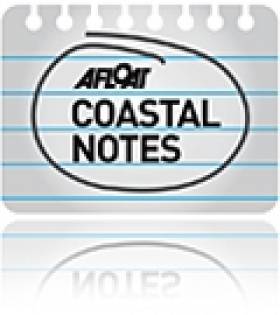Displaying items by tag: Whale Watch West Cork
Whale Watch Tour Firm Gets Digital Boost
#Business - A West Cork whale watching tour operator has been announced as the third winner of the Eircom Digital Boost initiative for 2013, as Business & Leadership reports.
Union Hall-based Whale Watch West Cork now has the opportunity to redesign its website, and also wins a strategy day with digital and marketing experts from the Eircom Expert Panel to provide consultation specific to their business, plus a place on the SureSkills Diploma in Digital Marketing and a telecoms package for one year, all to the value of €10,000.
Established by conservationist Nic Slocum, the small business is one of most popular operators in the region in an industry that has become a major tourism magnet since the Government declared our coastal waters as a whale and dolphin sanctuary in the early 1990s.
Operating the company for a decade, Slocum says his business "is currently 75% reliant on the internet so improving our online and social media presence is hugely important."
He added: "By having an up-to-the-minute digital strategy and a stronger online presence, we'll be in a much improved position to broaden our customer base and we are very excited about getting on with it now and implementing our new and improved global online strategy."
Gary Disley, marketing director with Eircom Business and a member of the Digital Boost Expert Panel, said that the Whale Watch West Cork team "have a huge passion for whale and dolphin conservation and know what whale watchers want. Winning Eircom’s Digital Boost will practically equip Nic and his crew to maximise their potential and help them build the business."
Digital Boost is Eircom’s initiative to help SME owners increase their digital presence and maximise their online potential. The scheme offers practical guidance and tips to boost online enterprise, and is to open to all small and medium business owners, with or without an online presence.
A Day in the Life of a West Cork Whale Watcher
Today's Irish Times recounts a day in the life of whale watch operator Nic Slocum.
Originally from the UK, Slocum traded tiring commutes to London for the peaceful life of sailing in west Cork 10 years ago, and shortly after turned his hobby into a new business by running whale watching excursions.
"We don’t promise whales and dolphins every time because they are unpredictable creatures," says the Whale Watch West Cork proprietor, "but for anyone interested in wildlife, there is an abundance of things to see. The marine coast is spectacularly beautiful here."
The Irish Times has more on the story HERE.

























































